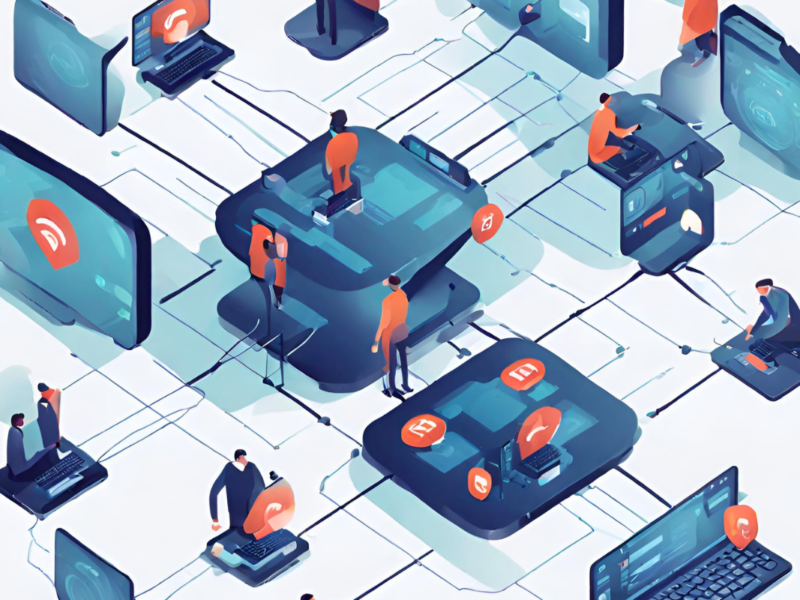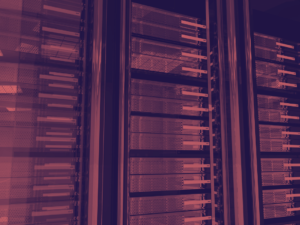Virtual Private Network (VPN) have become increasingly important for individuals and businesses alike in this current digital landscape.
A VPN is a secure and private connection that allows users to access the internet while protecting their online activities and data from prying eyes.
With the rise of cyber threats and data breaches, VPNs have emerged as a crucial tool to ensure online privacy and security. By encrypting data and masking IP addresses, VPNs enable users to browse the internet anonymously. This is return safeguards their personal information from hackers, advertisers, and government surveillance.
Moreover, VPNs allow individuals to bypass geo-restrictions, accessing content that may be blocked in their region.
As remote work and online communication become more prevalent, VPNs are essential for ensuring secure connections and protecting sensitive data. Overall, VPNs have become indispensable in today’s digital world. It provides users with the peace of mind and freedom to navigate the internet safely and securely.
Enhancing Security When Connected to A Virtual Private Network
VPNs employ encryption techniques to enhance data security by encrypting internet connections.
Encryption is the process of converting plain data into an encoded format that is indecipherable without the appropriate decryption key.
When a user connects to a VPN, their device establishes a secure and encrypted tunnel to the VPN server. All data transmitted between the user and the VPN server is encrypted. Encryption makes it extremely difficult for unauthorized individuals or malicious entities to intercept and decipher the information.

Encryption as well ensures that sensitive data such as passwords, financial information, or personal details remain protected from potential threats. By encrypting internet connections, VPNs create a secure and private network environment, safeguarding users’ data and providing peace of mind.
Unsecured networks pose significant security threats, as they lack the necessary encryption and protective measures to safeguard sensitive information.
Real-world examples of security threats on unsecured networks are pervasive and can have severe consequences.
One such example is the interception of unencrypted data during transmission. Hackers can easily eavesdrop on network traffic and gain unauthorized access to personal or confidential information.
Another threat is the risk of malware injection. Attackers exploit vulnerabilities in unsecured networks to deliver malicious software that can compromise devices. The malware is designed steal data, or even control systems remotely.
Additionally, unsecured networks are prone to man-in-the-middle attacks. Hackers position themselves between a user and the intended destination and intercept or alter communication.
These examples highlight the pressing need for secure networks to protect individuals and organizations from potential security breaches.
Privacy Protection When Utilizing Virtual Private Network
Virtual Private Networks play a crucial role in ensuring online anonymity by masking IP addresses. When a user connects to a VPN server, their internet traffic is encrypted and routed through a remote server before reaching its destination.
This process effectively hides the user’s IP address and replaces it with the VPN server’s IP address. VPNs make it extremely difficult for anyone, including ISPs, government agencies, or malicious actors, to track a user.
This anonymity provides users with a secure and private browsing experience, allowing them to access restricted content. It as well protects their sensitive data, and maintain their right to privacy in the digital world.
There are numerous instances where data tracking and privacy invasion occur without the use of a VPN.

One such example is online advertising. Websites and social media platforms collect vast amounts of user data to create targeted advertisements.
This data tracking often takes place without the user’s explicit consent or knowledge, compromising their privacy.
Another example is data brokers who collect and sell personal information to third parties, such as marketers, insurers, and employers.
These brokers compile data from various sources, such as online purchases and social media activity to create detailed profiles of individuals.
This invasion of privacy can lead to unwanted solicitations, discriminatory practices, and potential identity theft. Thus, without the protection of a VPN, individuals are vulnerable to various forms of data tracking and privacy invasion.
Bypassing Geo-Restrictions
VPNs have become an essential tool for internet users looking to access region-restricted content. By masking a user’s IP address and encrypting their internet connection, VPNs enable individuals to bypass geo-blocking. This enables then to access content that is otherwise inaccessible in their region.
This is particularly useful for streaming services, such as Netflix or Hulu. These companies have different content libraries based on geographical location. By connecting to a VPN server in a different country, users can trick these platforms. It will seem that they are accessing the content from an eligible region. This results in gaining them access to a wider range of movies, TV shows, and other region-specific content.

Additionally, VPNs also help users bypass censorship imposed by governments or organizations. Connecting to a VPN allows them to freely access websites and services that may be blocked in their country.
Overall, VPNs have revolutionized the way people consume digital content. The technology enables them to break through geographical barriers and enjoy a truly global internet experience.
User scenarios and benefits of accessing global content are varied and numerous. One scenario could involve a student who is researching a specific topic. The student can access to international sources to gather different perspectives and insights.
By accessing global content, the student can expand their knowledge base. They can gain a more comprehensive understanding, and develop a more informed perspective.
Additionally, professionals in various fields can benefit from accessing global content to stay updated on the latest trends worldwide. This allows them to enhance their expertise, make informed decisions, and maintain a competitive edge in their respective industries.
Secure Remote Access When Connected to A VPN
Virtual Private Networks play a crucial role in ensuring the security and privacy of remote workers’ access to internal networks. With an increasing number of employees working remotely, VPNs have become an essential tool. VPN allows for a secure connection between remote workers and their company’s internal network.
VPNs encrypt the network traffic, protecting sensitive data from potential hackers and ensuring that remote workers can securely access internal resources. By masking the user’s IP address and encrypting data, VPNs add an extra layer of security. This makes it extremely difficult for unauthorized individuals to intercept or tamper with the transmitted information.
Additionally, VPNs enable remote workers to access internal company resources from anywhere, ensuring seamless collaboration and productivity.
In a world where remote work is becoming the norm, the importance of VPNs in providing secure access to internal networks cannot be overstated.
Virtual Private Networks have become an essential tool for enabling secure remote work, and numerous real-life examples demonstrate their effectiveness.
One such example is the finance industry, where employees need to access sensitive financial data from outside the office. VPNs ensure that this data remains encrypted and protected while being transmitted over public networks.
Similarly, healthcare professionals often require remote access to patient records or diagnostic tools. By connecting through a VPN, they can securely retrieve and update medical information, ensuring patient privacy is maintained.
Additionally, with the rise of remote teams, companies across various sectors rely on VPNs to create secure connections for their employees working from different locations, safeguarding sensitive company data and communications.
These real-life instances highlight how VPNs play a crucial role in facilitating secure remote work, allowing professionals to access essential resources while ensuring data confidentiality and integrity.
Safer Online Transactions When Using Virtual Private Network
Virtual Private Networks, play a crucial role in enhancing security layers for online transactions. When users connect to a VPN, their internet traffic gets encrypted and routed through a remote server before reaching its destination.
This process shields sensitive information, such as credit card details or banking credentials, from potential threats. By encrypting the data, VPNs make it extremely difficult for hackers or other malicious entities to intercept and decipher the information being transmitted.
Furthermore, VPNs hide the user’s IP address, making it challenging for attackers to track their online activities and identity. This additional layer of anonymity provided by VPNs ensures that online transactions remain highly secure and protects users from potential cyber threats.

Unprotected online transactions pose significant risks to individuals and businesses alike. One scenario highlighting these dangers is the occurrence of identity theft.
When personal and financial information is transmitted without proper encryption or security measures, hackers can easily intercept and misuse this data, leading to unauthorized transactions and even draining bank accounts.
Another risk is the exposure of credit card information during online purchases. Without utilizing secure payment gateways or websites, sensitive card details can be intercepted, resulting in fraudulent charges and financial loss.
Additionally, unsecured online transactions can also lead to phishing attacks, where scammers trick unsuspecting users into revealing their login credentials or other personal information, thereby gaining unauthorized access to their accounts.
Such scenarios emphasize the importance of ensuring robust security measures to safeguard online transactions and protect against potential cyber threats.
Virtual Private Network: Avoid Bandwidth Throttling
VPNs play a crucial role in preventing ISPs from throttling bandwidth. When internet service providers detect heavy data usage or certain types of content, they often slow down the internet speed. ISPs state that is to manage network congestion or prioritize specific services.
However, by using a VPN, users can encrypt their internet traffic and hide it from their ISPs. This encryption ensures that ISPs cannot inspect the data packets passing through their networks, therefore preventing them from identifying which websites or services users are accessing.
Consequently, ISPs are unable to throttle bandwidth based on the content being accessed, as they are unable to distinguish between different types of traffic. VPNs effectively create a secure tunnel between the user’s device and the VPN server, ensuring privacy and preventing ISPs from interfering with the internet speeds.
Many users have reported significant improvements in their internet speeds after using VPNs. One common scenario is when users connect to a VPN server that is physically closer to their location.
By doing so, they can bypass congested or geographically distant internet routes, resulting in reduced latency and faster data transfer speeds.
For example, a user in Europe trying to access a website hosted in the United States may experience slower speeds due to the long distance between their location and the server.
However, by connecting to a VPN server located in the US, the user’s traffic is rerouted through a shorter and less congested pathway, leading to faster internet speeds. Additionally, VPNs can help users overcome bandwidth throttling imposed by Internet Service Providers (ISPs).
By encrypting their internet traffic, VPN users can bypass ISP restrictions and enjoy their maximum available internet speeds.
Protection Against Cyber Threats
Virtual Private Networks offer a comprehensive solution to protect users against hacking, phishing, and cyber threats.
By creating a secure and encrypted connection between the user’s device and the internet, VPNs ensure that sensitive information remains hidden from prying eyes.
When users connect to a VPN, their data is encrypted, making it unreadable to hackers. This encryption also safeguards against phishing attacks, as it prevents cyber-criminals from intercepting personal information such as passwords or credit card details.

Additionally, VPNs create a virtual IP address, which masks the user’s real location and identity, making it difficult for hackers to target them. By routing internet traffic through secure servers worldwide, VPNs add an extra layer of protection against cyber threats, ensuring that users can browse the internet safely and anonymously.
Case studies and statistics consistently highlight the significant impact of VPNs on cyber threat prevention. Numerous real-life examples demonstrate how VPNs have effectively protected individuals and organizations from harmful cyber attacks.
For instance, a case study conducted by a leading cybersecurity company revealed that implementing VPNs reduced the risk of data breaches by 80%.
Another study conducted by a government agency found that VPN usage decreased the number of successful phishing attempts by 70%, safeguarding sensitive information from falling into the wrong hands.
Additionally, statistics indicate that organizations utilizing VPNs experienced a 50% decrease in malware infections, showcasing the effectiveness of VPNs in preventing cyber threats.
These examples and statistics clearly demonstrate that VPNs play a crucial role in enhancing cybersecurity and mitigating the risks associated with cyber threats.
Conclusion
Using a VPN, or Virtual Private Network, offers numerous advantages and reasons why individuals should consider using one.
Firstly, a VPN provides enhanced security and privacy by encrypting internet traffic, safeguarding personal information from potential hackers and cyber-criminals.
Secondly, it allows users to access online content that may be restricted or blocked in certain regions, ensuring unrestricted internet access. Additionally, a VPN enables users to maintain anonymity online by masking their IP address, preventing their online activities from being traced or monitored.
Moreover, VPNs offer a reliable solution for remote workers, allowing them to securely access their company’s network and resources from anywhere.
Furthermore, a VPN allows users to bypass bandwidth throttling, ensuring faster and smoother internet browsing. It also protects against DNS leaks and Man-in-the-Middle attacks, further enhancing online security.
Lastly, a VPN allows users to securely connect to public Wi-Fi networks, protecting sensitive data from potential eavesdroppers. Overall, these seven reasons highlight the importance and benefits of using a VPN for a safer, more unrestricted, and private internet experience.







